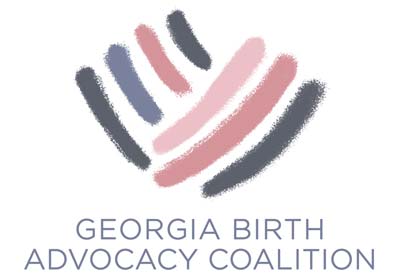File a Complaint
Perhaps one of the most frustrating things about obstetric violence and other forms of abuse during pregnancy and childbirth is that filing a complaint can be difficult. There’s no single agency or board that can hear all complaints. Where to complain also depends on the specific nature of your complaint, and whether or not you have evidence to substantiate it.
When to call a lawyer
For serious obstetric violence, your first call should be to a lawyer. A lawyer can advise you of your rights, write letters on your behalf, and ensure your complaint receives the attention it deserves. Some situations in which a lawyer may be interested in taking your case include:
You sustained a physical injury because of malpractice or poor treatment by a doctor or hospital.
A doctor or other provider performed a medical procedure without your consent, and you have clear evidence, such as a recording, that this happened.
Your child was injured by something a doctor or hospital did.
Additionally, if DFCS/CPS is involved or you are being threatened with court-ordered medical interventions, you need a lawyer. There may be other situations in which a lawyer is useful, so it’s wise always to err on the side of seeking legal advice early in the process. For help finding a lawyer, contact us here.
steps for filing a complaint against a doctor or hospital
If your complaint does not involve a physical injury, you may have difficulty getting a lawyer to take your case. That doesn’t mean you’re powerless, or that your rights were not violated. Here are your options for filing a complaint. In most cases, you will need to file several different complaints with several different organizations.
Please note that all information is specific to Georgia. If you are located in another state, this may help you begin your search for regulatory bodies in your area, but filing a complaint with Georgia regulators will not help. The Georgia Birth Advocacy Coalition is not your lawyer, and is not a lawyer or law firm. You should not treat the information on this page as legal advice. A lawyer hired by you who knows the facts of your case—not a website, message board, hospital, or doctor—is the only person equipped to advise you about your specific rights.
complain to the doctor or hospital
Hospitals and medical providers don’t want angry consumers destroying their reputation or filing complaints. They also are obligated to provide quality care that doesn’t break the law. So they’re often responsive to strongly worded complaint letters. Read a sample letter and learn how to write a complaint.
report a safety issue
The Joint Commission accredits and certifies hospitals and some other care centers. They investigate complaints about safety, and may remove the accreditation of a hospital that has a large number of complaints. Many hospitals rely on Joint Commission accreditation to market their services, so a complaint is a powerful tool.
complain to the nursing board about a nurse
If a nurse, including a midwife, mistreats you during pregnancy or birth, a complaint to the Georgia Board of Nursing may be appropriate. The Board hears serious complaints about incompetence, ethical violations, and abuse. If a nurse performed a procedure without your consent or did something dangerous, contact the Board.
warn others with negative reviews
A negative review about a hospital or doctor is a powerful tool, especially if you have evidence supporting your allegation. Protect others by warning them about your negative experience with a hospital or provider. Here’s how to write an effective review.
go to the media
Sometimes the systems designed to support patients fail. Numerous Georgia journalists have covered the myriad problems with the maternity care system. If your story is especially bad or ties into something they have previously covered, they may be able to help.
complain about refusal to provide treatment
The Emergency Medical Treatment and Labor Act (EMTALA), requires hospitals that participate in Medicare to treat people in labor. If a hospital refuses to admit you or discharges you for noncompliance, you can file a complaint for violation of this federal law.
complain to the medical board about a doctor
The Georgia Composite Medical Board licenses and regulates doctors. They can discipline or revoke the license of doctors who violate medical ethics or the law. If a doctor assaults you, withholds your medical records, or physically endangers you, you may have a valid complaint.
report bad hospitals to state regulators
The Georgia Department of Community Health regulates medical facilities such as hospitals and birthing centers. They investigate safety and ethical violations, and may discipline a facility that fails to meet certain minimum safety, quality, and ethical standards.
hire a lawyer
Lawyers are highly effective advocates who can file a lawsuit on your behalf, help you write letters and complaints, and advise you about other rights you might not know you have. If you think a doctor or facility broke the law, or if you have a physical injury, you need a lawyer.
contact the georgia birth advocacy coalition
The Georgia Birth Advocacy Coalition can help you write an effective complaint, find a lawyer who will help you, and connect you to resources that can help you recover, move forward, and prevent others from experiencing abuse. Contact us if you’re not sure where to begin.

